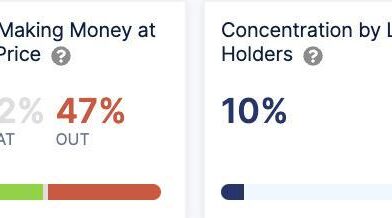A U.S. District Judge sentenced Nikhil Wahi to 10 months in prison on Tuesday, bringing one part of a historic cryptocurrency criminal case to a close. Wahi, the brother of a former Coinbase product manager, was charged with conspiracy to commit wire fraud last July in what prosecutors called the “first ever cryptocurrency insider trading case.”
“I made a huge mistake, a terrible mistake,” Wahi said Tuesday.
Nikhil pleaded guilty to that charge in September, admitting that his brother, Ishan Wahi, used his position at one of the largest crypto exchanges to pass along confidential information on asset listings. Ishan would tell Nikhil when a coin was about to be listed on Coinbase. And in response, Nikhil bought up shares of the cryptocurrencies just before they showed up on the popular exchange via an anonymous wallet. When the coin values inevitably went up after listing, legitimated by their presence on Coinbase, Nikhil would sell the shares off for a profit, according to a statement from the New York’s Southern District Attorney.
“Today’s sentence makes clear that the cryptocurrency markets are not lawless,” said prosecuting U.S. Attorney, Damian Williams.
In total, Nikhil reportedly made $892,500 off of his brother’s illicit advice, trading ahead of 40 different Coinbase announcements, according to a report from Reuters. He has been ordered to pay back that entire sum as part of his sentencing—on top of the 10 months of incarceration.
“It’s something that I will have to live with forever,” Nikhil Wahi told the sentencing judge, Loretta Preska, according to a report from Bloomberg. He is subject to deportation to India following the completion of his prison term. Nikhil’s defense attorney claimed that her client was motivated by a desire to support his parents in India, and repay them for his U.S. college education, reported Bloomberg.
Ishan and a third party, a friend of Nikhil’s named Sameer Ramani, are also facing criminal charges over the insider trading scheme. Ishan pled not guilty to his charge, and was released on bail in July. His case is pending. Ramani, on the other hand, is not in U.S. custody and is considered at large.
“There are real consequences to illegal insider trading, wherever and whenever it occurs,” Williams, the prosecutor, said. Yet one conviction and sentencing does not a robust system of regulation make. A crypto insider trading scandal even reached the hallowed halls of Congress earlier this year. The House Ethics Committee fined North Carolina Rep. Madison Cawthorn $15,000 for his apparent illicit advanced knowledge of NASCAR’s failed Let’s Go Brandon Coin sponsorship, and his promotion of the memecoin. Cawthorn did not face criminal charges. And, as always, scams and fraud abound on the blockchain. The fraud trial of FTX’s CEO Sam Bankman-Fried is scheduled for October.
The fact that the Wahi brothers were caught mostly came down to a luck. Twitter user @cobie noted a sketchy Ethereum purchase and posted about it. “Found an ETH address that bough hundreds of thousands of dollars of tokens exclusively featured in the Coinbase Asset Listing post about 24 hours before it was published,” @cobie tweeted on April 12, according a report from The Verge. A day later, Coinbase’s chief security exec responded to say the exchange was investigating. Other tweets have pointed out similar anomalies, though those tweets have not resulted in anyone’s arrest.
